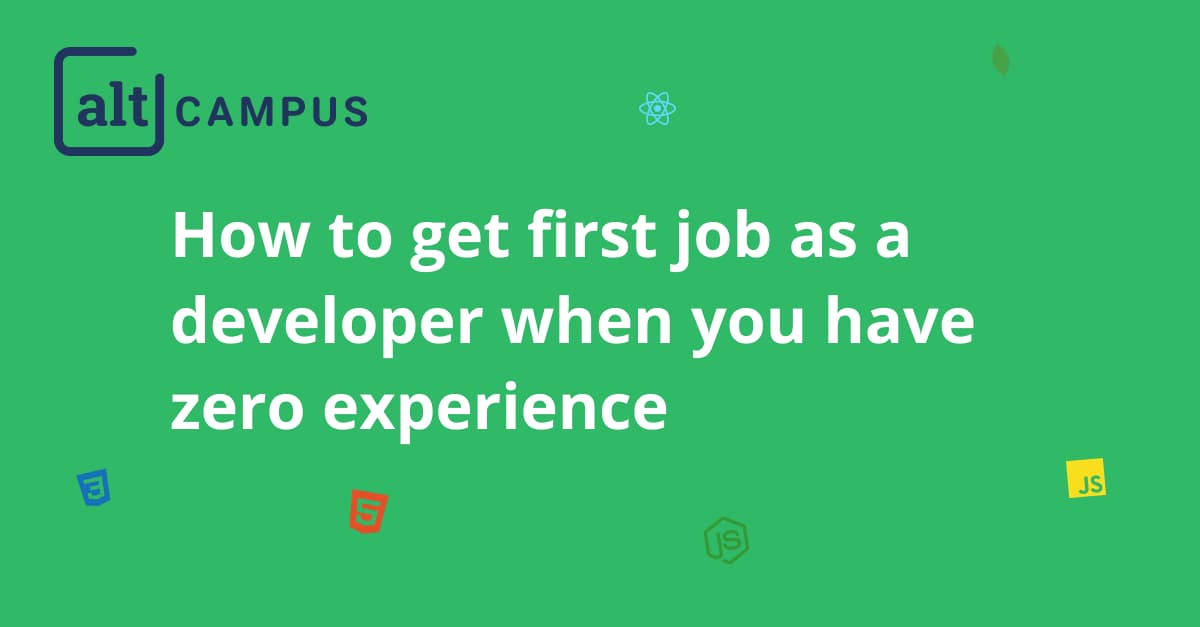How to Get Your First Job as a Developer When You Have Zero Experience

Most companies want to hire experienced developers but how do you become experienced until you get the first job? This is the classic chicken and egg problem version of tech jobs. Everyone needs to start somewhere.
First, let's understand why most companies want to hire experienced developers. It's becuase with experienced developers companies don't need to invest much time or mentorship in order to get them to be productive. They get the work done. Whereas junior developers usually need lot of handholding, time, and upfront mentorship. It either slows the companies down or needs more investment from them.
That said, you can get the first job even as a junior developer by showing the proof that you know stuff, can build things and can learn quickly. It's all about signaling the right stuff.
Here's how -
1. Build a portfolio
Build good projects, ideally outside of a tutorial, that showcase what you are actually capable of building. Make sure it has a live URL that people can checkout. It proves that you can actually ship a project end-to-end.
Here are some detailed tips on how to build a great portfolio.
2. Become good at writing code and problem solving
This is reflected in your Github repositories. Make sure that you refactor your code and follow good practices. Simple stuff like
- Writing good variable, function names
- Breaking down big functions into smaller, reusable functions
- Making sure that the code and modules are well structured and documented
goes a long way.
3. Pay attention to the details
This is critical. A major difference between junior and experienced developers is that experienced developers are used to paying attention to the details like handling edge cases because they have burnt their fingers in the past. Similarly as a frontend developer, pay special attention to the details of the UI.
Paying attention to the details signals that you are the kind of person who cares about the quality of your work and are diligent. A quality that can make you stand out even as a junior developer.
4. Learn and share stuff in public
Tweet, write blog posts and share what you learnt. This is a very good way of showcasing your knowledge and passion for learning. It also builds a network where you can get referred or people might show interest in hiring you, without you even looking for it.
For example, pick up a new library/framework/tool in the relevant language. Read the official documentation and other articles and try to build a project around it and share your learnings online. This shows that you can learn new skills quickly and can also communicate about it.
5. Apply. Apply. Apply.
Once you have a deployed project that is complete either in frontend, backend or full-stack, you should start applying. Read up frequently asked questions in interviews.
Apply to various companies. It's inevitable that you will get rejected at some places. Don't get disheartened, there are thousands of companies hiring. Learn from the mistakes in previous interviews and keep applying.
Good luck. 🙌